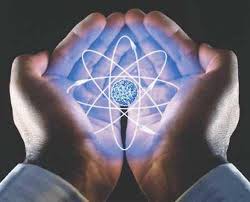 Physics is a subject that often gives students many headaches as it includes complex mathematical problems. However, it is a fascinating natural science
that has contributed greatly to helping us understand the world around
us and to develop technologically. We discuss some top tips below to
help you gain an understanding of physics and achieve good exam results in this subject.
Physics is a subject that often gives students many headaches as it includes complex mathematical problems. However, it is a fascinating natural science
that has contributed greatly to helping us understand the world around
us and to develop technologically. We discuss some top tips below to
help you gain an understanding of physics and achieve good exam results in this subject.
How to Study Physics: 5 Techniques to Improve your Memory
Master the Basics:
Physics is based on a number of central theories
from which everything else develops. It is therefore very likely that
the problems you will have to solve in the exam will be based on these
core concepts or a variation of these. Consequently, instead of trying
to memorize complex problems, it is advisable to assimilate the basic
concepts and theories which will help you understand the underlying
principles and the connection between different subjects.
Strengthen Your Maths Skills:
As already mentioned, if you are studying Physics then you will see that it incorporates many mathematical elements. This means that you would easily master this subject if you were adept at tackling multiple formulas and problems.
Simplify:
Try to simplify the situation as much as possible. The Physics
problem you are reading may seem difficult to solve at first but take
another look and begin to analyze it and you will realize that is easier
than you first thought.
Use Drawings:
A great way to implement the point above is through drawings or graphics. We have already discussed the benefits of mind maps but drawings can also be essential when in order to understand and study physics.
Use Flashcards to Study:
Take note of new words, units of measure, general principles and
other concepts that arise. This will help you follow the thread of
theory and strengthen the new information which will have positive
consequences when faced with problem solving.
Physics is an interesting subject that could be applied in our daily life. It allows students to translate verbal information in to pictures and then they tends to analyze it to do mathematical models to solve the problems.
ReplyDeleteReally "chapeau bas" like they say in french for those who can actually understand this subject. Learning physics was catastrophic and teaching it was even more hectic.
ReplyDelete